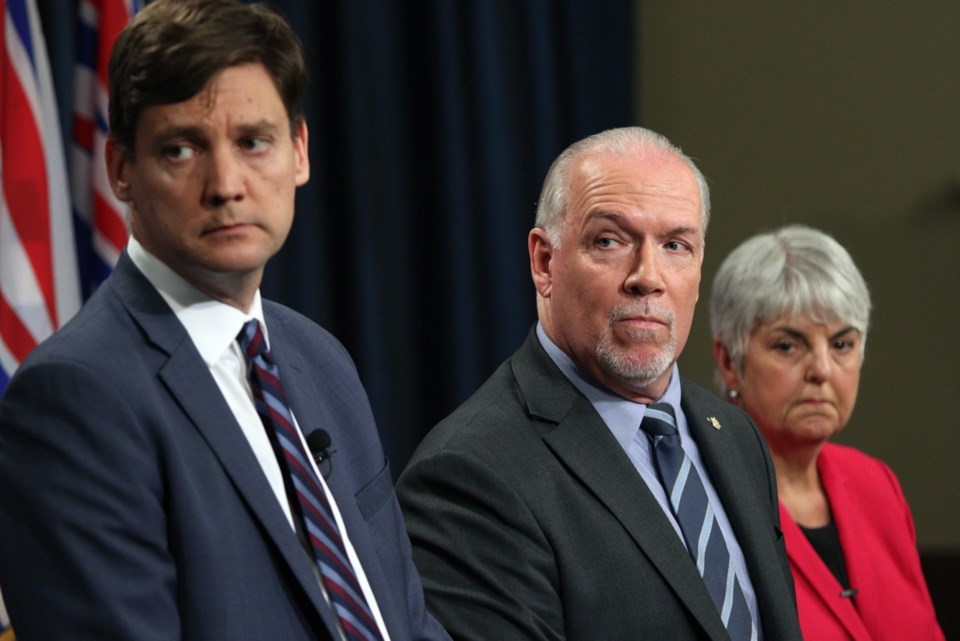In the buildup to the public inquiry announced Wednesday, the B.C. government got a 300-page report last week full of compelling observations about money laundering in B.C.
It got a separate 100-page report the same day on how prevalent the criminal activity is in real estate, complete with 29 sweeping recommendations on what to do about it.
It would take years to respond to those reports, but the government wants still more.
So Premier John Horgan and his ranking cabinet ministers announced a public inquiry Wednesday with an open budget and a two-year time frame to wade even deeper into the shadowy world of dirty money.
Horgan said it’s needed because money laundering contributed to making housing prices unaffordable in much of B.C. and is linked to the epidemic of drug-overdose deaths.
The two reports on money laundering made it clear that “the depth and magnitude is far worse than imagined,” he said.
The inquiry, to be headed by B.C. Supreme Court Justice Austin Cullen, a former senior prosecutor, will provide an understanding of how B.C got to this point and illustrate every element of the problem, he said.
There’s one key element the NDP government is obviously focused on exposing. It’s explicitly cited in Cullen’s terms of reference: “Corruption.”
The conduct of the previous B.C. Liberal government will be a prime focus of the probe, if it unfolds as the NDP government envisions.
Horgan and Attorney General David Eby already have an expert guidebook in the two reports on how to begin tackling the problem. What they want is an independent accountability report that casts the appropriate blame on officials in place when it started developing.
It’s written right into the terms of reference. Cullen is ordered to examine “the acts or omissions of regulatory authorities or individuals.” He’s further ordered to determine whether those acts or omissions “have amounted to corruption.”
That’s not a word often used in terms of reference. Eby said it’s about “who knew what, and when.”
It’s a legitimate question, but the potential political gains for the NDP are an obvious factor in the decision to call the inquiry.
Horgan and Eby were initially indifferent to the idea. Inquiries are expensive, time-consuming and get bogged down in legalities. Horgan said he resisted because they were focused on establishing consequences for emerging revelations.
But last week’s reports showed dirty money is rampant enough that a public inquiry could have a lot of ground on which to get traction.
The Liberal opposition promised full co-operation with the inquiry.
Eby last year publicly posted a letter he wrote to the opposition asking it to waive confidentiality over any Liberal cabinet documents related to work on money laundering, in order to get a full picture of the problem.
It was seen as a political stunt, and nothing happened.
Cullen is now charged with taking a harder look, and there’s a lot more riding on the conclusions he reaches.
Just So You Know: The only constraint on Cullen is that he is barred from inquiring into prosecutorial discretion, because of earlier precedents. But Horgan referred twice to the notorious collapse of the Silver International money-laundering case, in discussing his thinking on the need for an inquiry.
Money laundering charges are rarely laid in Canada, but police built a major federal case against the Richmond entity, only to have it collapse last fall just as the trial was to start. Not only were charges stayed, but no explanation was offered. That disgraceful situation led to ongoing cabinet debate about accountability.
The federal cabinet has promised to co-operate with the inquiry. Given how much responsibility Ottawa has for fighting money laundering, that’s going to be crucial in determining how much progress Cullen makes.



